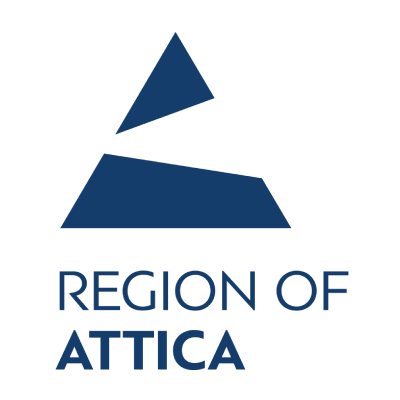Konstantinos Michalos: “Attica is a modern metropolis of the world that astonishes with its contrasts”

Interview with the President of the Union of Hellenic Chambers of Commerce and the Athens Chamber of Commerce and Industry, Mr. Konstantinos Michalos:

“Attica is a modern metropolis of the world that astonishes with its contrasts”
1. Mr. Michalos, it is a fact that currently there is “investment mobility” in various business sectors. How can this positive climate be extended in the tourism sector?
It is true that lately Greece has been at the center of investment interest, which remains high despite the negative investment climate created by the global health crisis. In 2020 alone, a number of major investments and projects in various sectors were announced, which confirm the improved image of the country as an investment destination.
Tourism is currently the most severely damaged sector in the world and the continuing uncertainty surrounding the duration of the pandemic is expected to discourage investment activity. However, this does not overrule the advantages and the great investment opportunities that our country provides in this field, now and in the years to follow.
Despite the effects of the pandemic, Greece remains one of the top destinations in the world and expects a rapid recovery in tourist traffic after the end of this crisis. The implementation of emblematic investments, such as the one that started at the former Ellinikon International Airport, the plan to upgrade the Attica Riviera, along with a series of privatisation projects in tourist areas of the country, creates new opportunities for investment and strategic collaborations. These opportunities are found not just in the hospitality industry, in the development of tourist premises such as marinas, conference centres etc., but also in alternative forms of tourism, such as health and wellness tourism.
2. Why invest in Attica?
Attica is a destination with unique competitive advantages in the tourism sector. It has an internationally recognisable name, history and culture, a high level of human resources – also being multilingual compared to competing countries – and of course unparalleled natural beauty. Its climate allows for tourism around the year, it offers direct access to the sea and the largest port in the country, and it is near archaeological sites of universal magnitude, such as Delphi, Mycenae, etc.
Moreover, in recent years, Attica’s transport network has been significantly upgraded, with the expansion of track-based means. Now the METRO subway covers the distance from the airport to Piraeus port, connecting the main points of Athens, while the tram provides access to a large part of the coastline, both from the centre of Athens and from Piraeus. The network will be significantly reinforced in the coming years with the creation of the new METRO subway line, which will connect the city centre with the northern suburbs of the city.
And, of course, Attica has the great asset of hosting dynamic enterprises in the direct and wider tourism sector, which have proven to be reliable and effective partners and associates.
3. What are the advantages that Attica provides to the visitor who wants to combine business and leisure?
Attica is a metropolis of the world, which I would say is worth visiting at least once in one’s lifetime, a place that is addressed to all age groups and all preferences. It is a multidimensional collection of destinations that combine culture and sightseeing as well as nightlife, entertainment and gastronomy, shopping and, of course, access to the sea.
It has long historical presence and at the same time manages to remain modern and open to new trends, to surprise through its contrasts, to offer unique experiences. So, whether you visit it individually or on a business trip, it is certain there will be something interesting to do any time of the day.
4. Why is a trip to Attica tempting both for the individual visitor and in the context of organised business trips (e.g. medical conferences)? How competitive is the cost of such a trip to Attica compared to other parts of Europe and how does Attica manage to win the value-for-money destination bet?
Today Attica offers a fairly good quality-price ratio, as the majority of visitors state in relevant surveys. In terms of conference tourism, it is currently on the list of the top 20 destinations in the world. But surely this position can and should be further improved.
In this endeavour we have great advantages to exploit, such as the good climate conditions, the geographical location – which allows one to combine their visit with tours in important archaeological sites or even short breaks and cruises – the security, the hospitable culture of the place, the developed nightlife etc.
At the same time, however, we must try to improve other parameters, such as conference premises, by developing new venues for hosting large-scale conferences, as part of strategic public-private partnerships. Targeted promotion will also be needed in order to increase the share for Attica in the international conference market, attracting major industry and corporate events, as well as incentive trips.
5. What advice would you give to tourism entrepreneurs in the Region of Attica?
At this stage, tourism entrepreneurs are fighting a battle for survival against the impacts of the pandemic. In this battle, as a Chamber of Commerce and Industry, we have been by their side from the first moment. We are in daily contact with the market representatives, we listen to their concerns and strengthen their voice and demands. We have submitted specific proposals to the State, and we are monitoring the development of the situation. Together with the tourism entities, we will continue to propose and claim interventions that will contribute not only to the management of the current situation, but also to the preparation of the next day.
We do not currently know how long the impact of the pandemic on tourism will last and the extent to which it will bring permanent changes in consumer behaviour. The first thing we need to see is how tourism businesses can be fully operational again, in safe conditions and with measures to protect visitors, workers and public health.
Beyond that, the State and tourism businesses need to plan their strategy and moves in an industry that is changing and transforming globally.
We need to look, for example, at tourism development in the context of the goal for sustainability. To clarify what kind of tourism we want, what we want to gain from tourism, under which terms and rules; to target not only more visitors but also high-level visitors, with proper distribution in space and time.
We must also adapt the product, services and promotion to the strategy of Greek tourism, in order to address new, emerging markets and age groups – such as the generation of millennials – but also people over the age of 70. We must invest in upgrading the skills of human resources and of course keep pace with the digital transformation of the industry, exploiting new technologies and tools.
6. What would you add to the tourist map of Attica?
The tourist map of Attica can be significantly upgraded and enriched by utilising and highlighting new attractions and points of interest.
It may, for example, include new, currently degraded post-industrial areas, which can be transformed into leisure and cultural hubs, through integrated investments of venues and the concession of public property that is abandoned today.
Alternative points of gastronomic or sporting interest could also be added, such as the historical market of Athens or the water sports centres in the coastal areas. I would also add to the tourist map areas with special archaeological interest that are outside the Attica basin but within the Region of Attica, such as Elefsina, Marathon and Megara, but also the islands of the Saronic Gulf, by developing options for organised daily visits.
7. In recent years, Attica has gained… touristic ground also in the field of shopping. Which business moves are necessary in your opinion, so that it can be established as a shopping destination? To what extent can the sales periods, the high-quality products, the big commercial streets, the new shopping centres as well as the emergence of smaller neighbourhoods as fashion hubs contribute to this goal and how safe is Attica for shopping?
Indeed, Attica has markets for all tastes. In the shopping streets of the city centre and the neighbourhoods, in the open-air markets but also in the shopping centres, you can find a huge variety of items and of course varying prices. It is, nevertheless, true that the shops in the centre of Athens mainly benefit from tourism. In order for the whole of Attica to prove itself as a shopping destination, an integrated policy must be designed, coordinated by the regional and local authorities, the trade associations, the ACCI and other bodies. This policy may, of course, include the targeted promotion of regional markets, the organisation of events, offer weeks etc.
On the issue of security, there must be continuous effort to control delinquency, but also to combat illegal trade, which seriously affects legitimate commercial activity and degrades the image of markets.
8. What characteristic/qualitative products would you buy from Attica as a holiday souvenir or as a gift?
From Athens I would buy works and objects of art, gravures, silkscreen paintings, antiques etc., which can be found in galleries, museum shops or even in second-hand shops of the city centre. I would definitely buy Mediterranean food products and drinks.
Something that I would also suggest to a visitor would be to explore the dynamic fashion and design scene that is developing in our country in recent years, including clothing and accessories, jewelry etc. of high quality and aesthetics.
9. What advice would you give to a traveller preparing to visit Attica for the first time?
I would advise them to devote enough time getting to know better the modern side and the rhythm of the city, in addition to visiting the classic sights. They should definitely visit the important museums as well as discover the alternative art spaces, music festivals etc. To wander in neighbourhoods such as Koukaki, Petralona and Mets, but also in large commercial markets outside the centre, such as Kifissia and the southern suburbs, to try the gastronomy of the city – from the small food places around the central market of Athens to the wine bars and restaurants with international cuisine. I would also suggest an excursion to the coastline of Athens ending in Sounio or in one of the islands of the Saronic Gulf.
10. What is your favourite place in Attica and why?
I would definitely distinguish the historic centre of Athens for its unique cultural value and heritage, but also for its liveliness, energy and bustling daily life, for its contrasts, for the hundreds of small businesses and its people, who never give up. Also, one of my favourite places is the Attica Riviera, for its natural beauty and cosmopolitan character.




